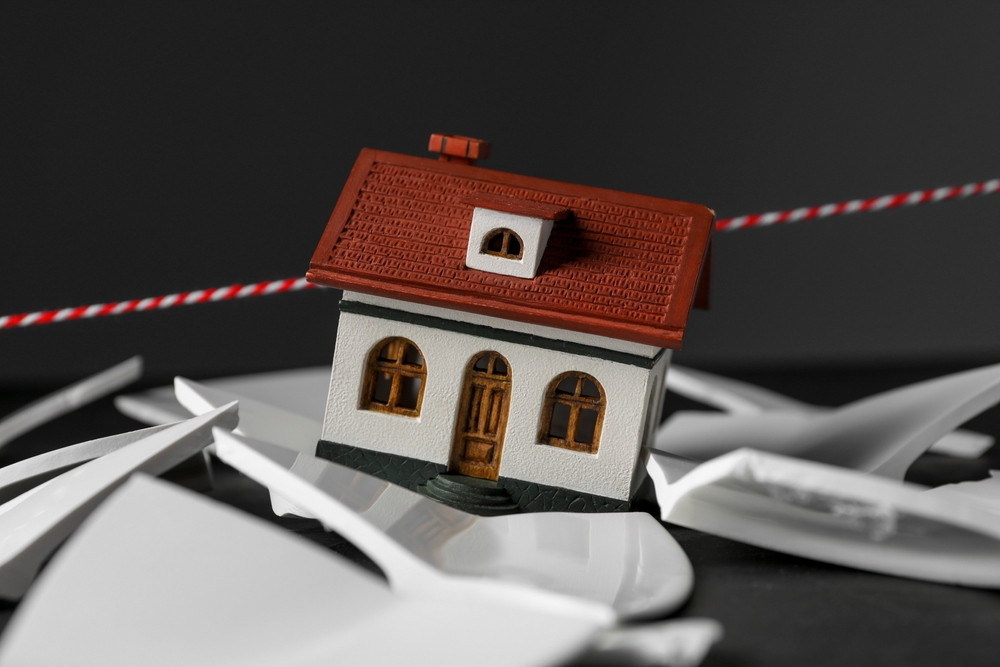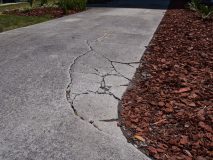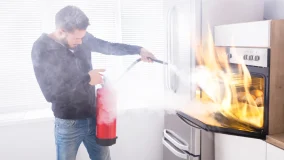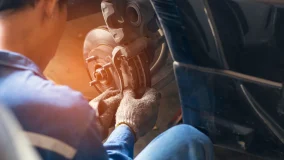Does Homeowners Insurance Cover Driveway Damage?
After a certain number of years and some harsh weather and leaking chemicals, your driveway may begin cracking or worse. Does homeowners insurance cover driveway damage? If your main parking spot begins to deteriorate, you’ll want to understand just how your insurance policy works. Delving into the specifics of your policy concerning driveway coverage will help answer your questions.
Deciphering Your Policy: Are Driveways Included?
When you choose a policy, you should ask your insurance agent to carefully go over what is and is not covered, so you understand your homeowners insurance well. A homeowner’s policy can usually be broken down into three main categories. Depending on the insurer, the actual names of these categories can vary. They typically include property, loss of use, and liability. The main one that concerns driveway coverage is the property category. Property coverage is further broken down into the following categories:
- Dwelling
- Other Structures
- Personal Property
Driveways are listed under “other structures.” Even though you may not view it as a structure, the insurance company usually categorizes it that way. Many times, driveway damage will be covered by your homeowners insurance. However, it depends on how the damage occurred.
Common Misconceptions About Home Insurance and Driveway Damage
Some people may think that any type of damage that occurs to driveways will automatically be included in your homeowner’s policy. However, certain things may not be covered. The one thing to keep in mind is only “covered perils” will be paid out. A covered peril includes situations that lead to damage or destruction of property. These situations are pre-determined by your insurance company, but most insurers have similar covered perils such as lightning, fire, and wind or hail damage.
Types of Driveway Damage Covered by Home Insurance
So, does home insurance cover driveways? The answer is yes and no. That’s because it depends on the type of damage. The covered perils in your policy may include things like a tree falling on your drive and cracking it. If a tornado touches down and damages it, that may also be included under your policy. Other examples of covered perils are:
- Fires
- Hail
- Other storm damage
- Windstorms
To find out what your homeowners insurance does and doesn’t cover, you can speak to an agent.
Understanding the Limits and Exclusions
If you aren’t familiar with your insurance policy’s limits and exclusions, you may assume that any type of driveway damage will be covered. However, this is not the case, as there are some limitations.
Navigating Policy Exclusions: When Is Your Driveway Not Covered?
When exploring answers to the question is a driveway covered by insurance, you’ll need to be aware that not every type of issue will be covered under your policy. You can answer this and other homeowners insurance FAQs by taking a closer look at your policy.
Your policy will contain a few exclusions that might fit your situation. It’s helpful to understand these upfront to better protect your assets. You can talk to your agent to understand the exclusions, but these are some of the more common ones:
- Floods
- Earthquakes
- Mudslides
- Various under-the-ground movements (i.e., earth settling, bulging, shrinking, or expanding)
- Deterioration due to neglect
- Intentional damage
- Sinkholes

Protecting Your Driveway: Prevention and Maintenance Tips
Since pavement can be quite expensive to repair or replace, it pays to prevent problems from occurring by maintaining it. You can keep yours lasting many years with a few simple preventative measures and regular maintenance.
Proactive Measures: Keeping Your Driveway Safe from Harm
You don’t want to do anything that will put stress on your driveway or damage it. Some tips to avoid harming this area include:
- Use care when placing very heavy items on your driveway: If you must park large equipment on the driveway, look for an area that is flat with no visible cracks. A heavy piece of equipment has the potential to worsen the cracks.
- Pay attention to where you place heavier objects: Even parking your car near the edge can be harmful since driveways tend to have more damage around the edges. Putting more pressure on this area could lead to further problems.
- Beware of auto fluids: Some vehicles may drip various fluids onto the concrete or asphalt. This can be harmful over time. It’s important to wash the fluids away so they don’t accumulate or settle into the driveway.
- Beware of mold and mildew: If your concrete is not maintained properly, mold or mildew may grow. This can cause superficial cracks that, over time, lead to greater issues.
Addressing Damage Early: Why Maintenance Matters
Different seasons bring with them various risks to driveways. These natural elements can cause a breakdown of your driveway over time. However, if you address any issues right away, you can prevent further damage. You may need to follow a spring or fall maintenance checklist to ensure you don’t forget to address these tasks. Aside from addressing current issues you already see, you can apply sealant regularly to prevent future damage.
Make Sure Your Driveway and Home Are Covered with Homeowners Insurance
Now that you are more familiar with whether driveways are covered by your homeowner’s policy, take time to discuss your insurance with a qualified agent. At Acceptance, you can count on thorough coverage for your home with budget-friendly prices. Our agents can discuss any concerns you have to ensure that you get the best coverage at the most affordable option.
Contact us by phone at (877) 405-7102. Additionally, you can visit one of our many locations or get a quote online.




